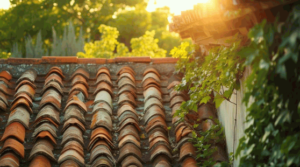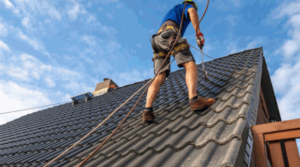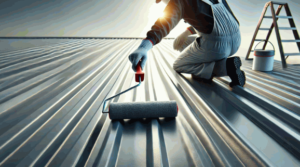Slippery floors can be a major hazard. To tackle the problem, here are some home remedies. Slipping and falling is not fun and can lead to serious injuries. But don’t worry – there are simple, effective solutions!
One way to help is to use traction pads or non-slip rugs. They provide extra grip and prevent accidents. Place them in high-risk areas such as entrances, bathrooms, and kitchen exits.
You can also apply an anti-slip coating to your floors. These coatings create a textured surface that makes it less slippery. You can find products for different types of flooring materials.
Also, keep your floors clean and dry. Regularly sweep or vacuum. Mop up spills immediately.
Take action today! Invest in your family’s well-being. Don’t let fear hold you back.
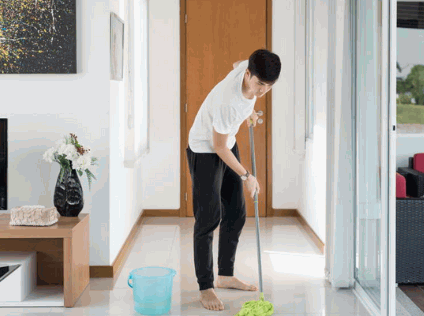
Causes Of Slippery Floors
Slippery floors can be a serious danger, bringing accidents and injuries. Understanding the causes of slipperiness is crucial.
- Unsuitable cleaning: Accumulated dirt, dust and grease make floors slippery if not cleaned properly.
- Moist surfaces: Spills or dampness on floors can cause slipperiness, especially in spots without proper drainage.
- Old flooring: Long-term wear and tear make the surface irregular, increasing the risk of slips.
- Polished or waxed floors: At first glance, they look shiny, but they can become slick when exposed to water or detergents.
- No anti-slip elements: Floors with no mats or coatings that increase grip are more likely to be slippery.
- Incorrect footwear: Shoes with worn-out soles or inadequate tread can cause accidents on slippery surfaces.
Furthermore, there are extra details to contemplate. Humidity might influence slipperiness. Marble or porcelain tiles are often slicker than other flooring materials. Also, newly mopped floors can still be slippery due to moisture.
Pro Tip: Place mats at entrances to avoid water and dirt from being tracked onto the floor.
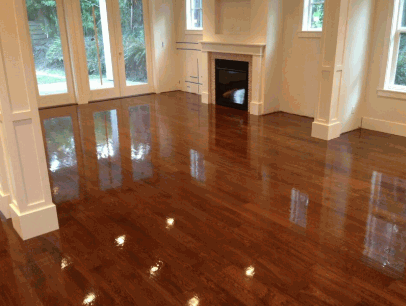
Importance Of Addressing Slippery Floors
Addressing slippery floors is key for the safety and well-being of people. Slippery surfaces cause accidents, which lead to injuries and legal issues. Hence, proactive steps must be taken to stop slip and fall incidents.
Slippery floors can be found in homes, workplaces, and public spaces. In homes, they may cause accidents to both residents and visitors. In workplaces, slippery floors can injure employees, leading to decreased productivity and medical costs. In public spaces like malls or restaurants, these surfaces can be hazardous for customers and result in lawsuits.
By addressing slippery floors quickly, potential accidents and their consequences can be limited or avoided. Installing slip-resistant flooring materials is an effective solution. These materials have unique additives for better traction, and reducing slips and falls. Regular maintenance of floors is also necessary to remove substances that cause slipperiness, like water spills or greasy residues.
Raising awareness of the risks and preventive measures is another important aspect. Awareness campaigns can draw attention to the issue and encourage caution on slippery surfaces. Warning signs in areas prone to slipperiness also offer protection by alerting people about the danger.
Pro Tip: To boost safety on slippery floors, use non-slip mats or rugs near entrances or areas with water or other liquids. These mats absorb moisture, reducing the risk of slips and falls.
Delve into: How To Steam Clean Carpets
Precautions To Take To Prevent Slippery Floors
To avoid slippery floors, taking the right measures is a must. Here’s what you can do:
| Steps | Description |
|---|---|
| 1. Clean up | Sweep or vacuum on the reg to get rid of dust, dirt, and debris that might make it slippery. |
| 2. Non-slip Mats | Place mats or rugs in areas where it’s wet, like sinks and showers—extra traction! |
| 3. Secure Loose Carpets | Make sure any carpets or rugs are firmly secured, so no one trips. |
| 4. Wipe Spills | Clean any spills or liquids on the floor ASAP. |
| 5. Adequate Lighting | Make sure the area is brightly lit. |
Also, maintain your flooring like polishing or waxing, and wear shoes with a good grip around the house. Pro Tip: Get an anti-slip coating for different flooring materials to boost traction.
Home Remedies For Slippery Floors
Slippery floors can be a major hazard. Here’s how to tackle this issue:
| 1. Assess the surface. Identify the flooring material. Different surfaces require different remedies. |
| 2. Clean thoroughly. Use a suitable cleaning agent. Avoid using too much water. |
| 3. Get non-slip solutions. Buy adhesive traction strips or mats. |
| 4. Try natural remedies. Use vinegar or lemon juice mixed with water as a cleaning solution. |
If your floor is still slippery, you may need a pro’s help.
Plus, maintain regular cleaning routines and address spills right away.
Follow these home remedies for slippery floors to make a safer environment.
Pro Tip: Place rugs with rubber backing in high-traffic areas to avoid slips.
Step-By-Step Instructions For Using Each Home Remedy
Want to make slippery floors safer? Here are step-by-step instructions for using home remedies.
Vinegar and water: Mix equal parts of vinegar and warm water in a bucket. Mop or clothe the floor with the solution. Rinse with clean water afterward.
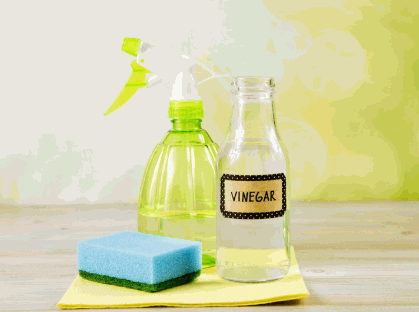
Baking soda: Generously sprinkle baking soda on slippery areas. Leave it overnight. Sweep or vacuum up the baking soda the next morning.
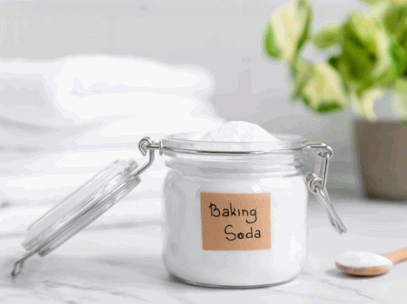
Salt: Sprinkle a handful of salt on the slippery spots. Let it sit for a few minutes. Scrub the area with a brush or cloth soaked in warm soapy water.
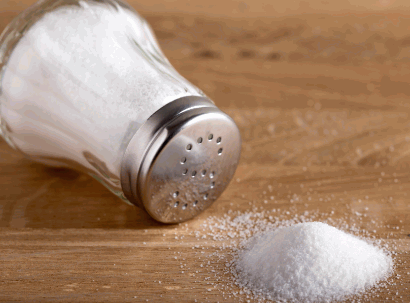
Lemon juice: Squeeze fresh lemon juice onto the slippery areas. Let it sit for 5-10 minutes. Scrub the floor with a sponge or brush dipped in warm soapy water until clean.
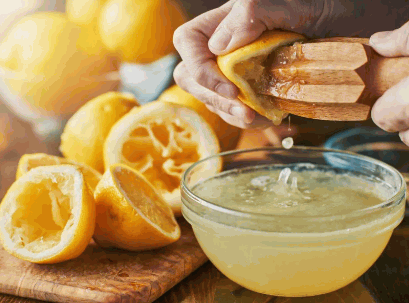
Don’t wait until someone gets hurt – make your floors safer for your family and guests today!
Additional Tips for Maintaining Non-Slippery Floors
Maintaining non-slip surfaces is important. To help, here are some tips!
- Clean floors often using the right products.
- Place mats or rugs in wet or slippery spots.
- Wipe up spills quickly.
- Encourage wearing shoes with a grip.
- Ensure good lighting.
Investing in anti-slip treatments helps too. Take steps to prevent slips to protect everyone. Regularly use these tips to create a safer environment and reduce the risk of accidents. Don’t wait, start now! Your loved ones will thank you.
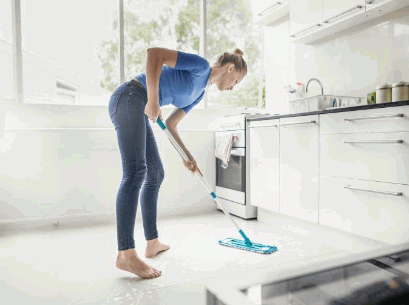
Conclusion
In conclusion, there are lots of great home remedies to help avoid slippery floors. Try a vinegar and water solution – it’ll get rid of dirt and increase traction. Sprinkling baking soda on the floor and then mopping with warm water is also useful for creating a non-slip surface. Plus, putting rugs or mats in high-traffic areas can decrease the risk of slips and falls, by giving extra grip and stability. Remember, regular cleaning and maintenance of the floor is key for a safe and slip-free space for you and your family.

